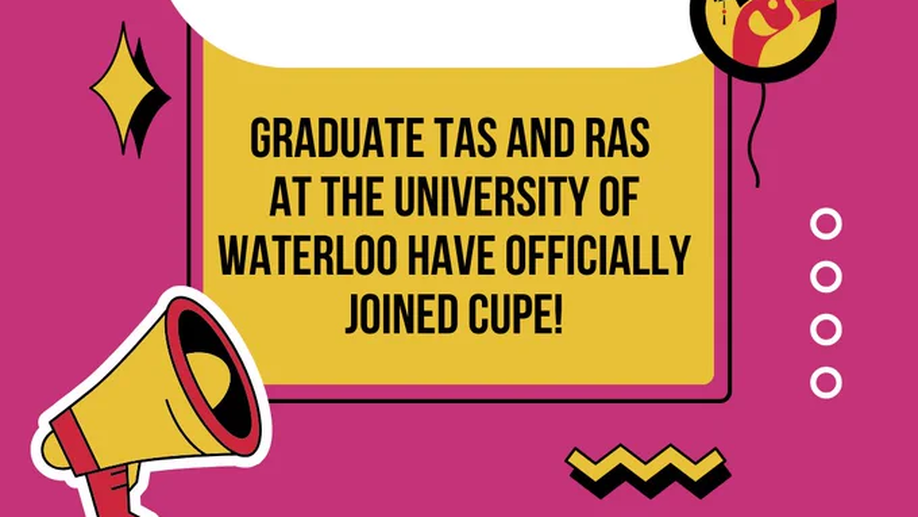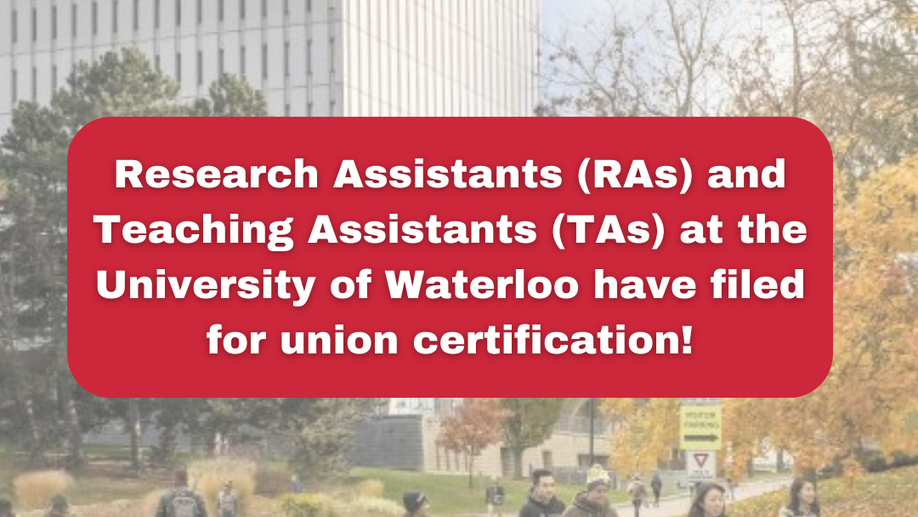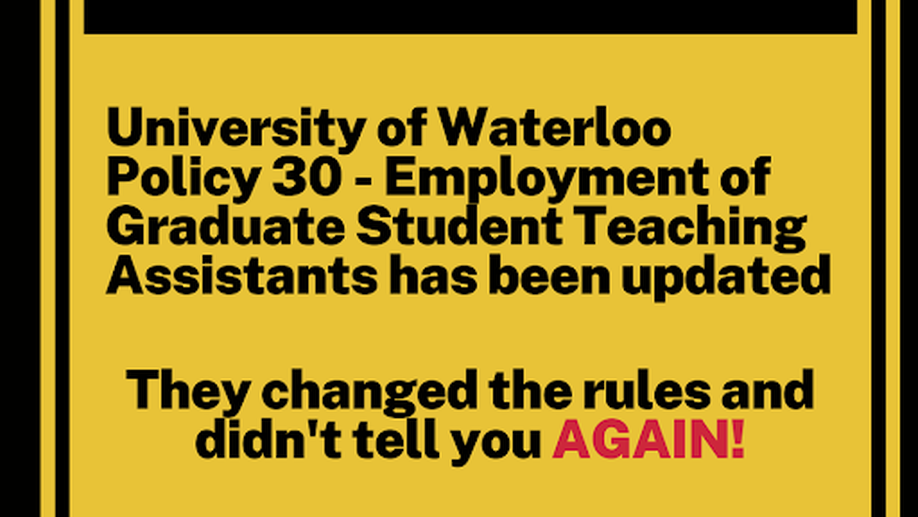Graduate TAs and RAs are unionized!
The YES vote was successful, but there are more steps to come. Want to stay up to date?

The YES vote was successful, but there are more steps to come. Want to stay up to date?

The Committee to Organize UWaterloo (aka OrganizeUW or OUW) is a grassroots campaign to unionize the academic workers at the University of Waterloo (UW). It was started in March 2020 by a group of graduate students hoping to make Waterloo a better place to work.
Since then, the movement has had great success. In separate votes, both sessional instructors and graduate TA/RA workers have overwhelmingly voted to unionize, receiving certification from the Ontario Labour Relations Board!
While the card-signing and voting campaign is now over, OrganizeUW remains involved in the process of getting our new union up and running.
OrganizeUW is proudly supported by the Canadian Union of Public Employees. With over 715,000 members nation-wide, CUPE is Canada's largest union and a leader in the post-secondary education sector in Ontario and across Canada.
Our new union looks forward to continuing to collaborate with advocacy organizations in the UWaterloo area, including the UW Graduate Students’ Association (GSA). The GSA provides many services and events for UW graduate students. For more information about the GSA, please follow this link.
The primary aim of the organizing committee is:
To build an inclusive OrganizeUW where human rights are built into everything we do, including in how we operate our current drive and what we plan for our future union local. By focusing on diversity, equity, and inclusion we hope to make our spaces open, diverse, fair, equitable, representative, and ultimately incompatible with white supremacy and patriarchy. Only by ensuring full, meaningful, and equitable chances for everyone to participate in our grassroots group can we hope to build a successful union movement that will truly improve the lives of everyone at UW.
The principles and goals for this campaign have been outlined by the OUW Committee for Anti-Racism, Diversity, Equity & Inclusion and can be found in full here.
Recent and upcoming webinars, town halls, socials, info tables, and more
The latest blog posts, media coverage, announcements, and more

The OLRB has issued the certificate confiring the unionized status of UWaterloo Graduate TAs and RAs.

BREAKING NEWS: Today, Monday December 11th, OrganizeUW filed an application to certify our union at the Ontario Labour Relations Board (OLRB)! Well over 40% of graduate TAs & RAs at UWaterloo have signed union cards, clearly showing that workers throughout the university demand a union.

Policy 30 - the policy that outlines the terms of employment for TAs - was updated as of December 13, 2022. We want to explain some of the issues we see with Policy 30 - both the process and the content - and how it would be different if we were already unionized.